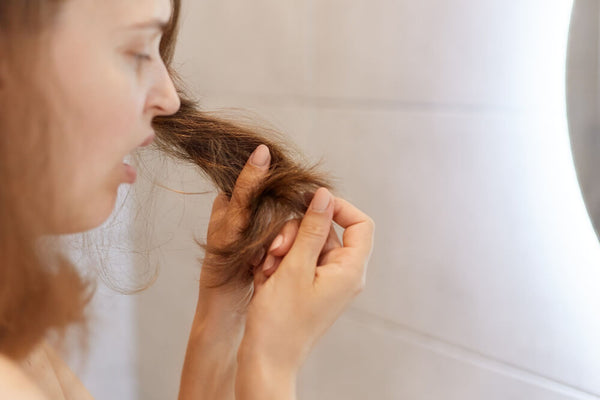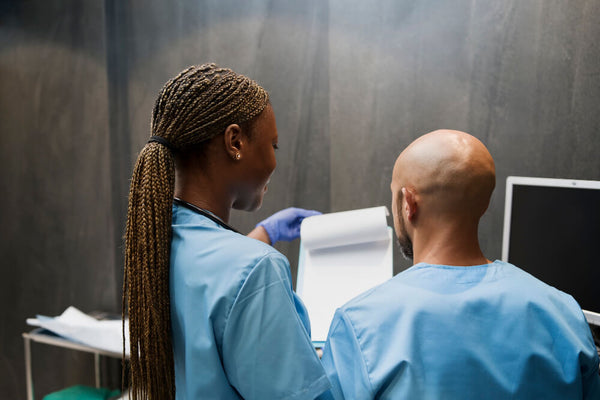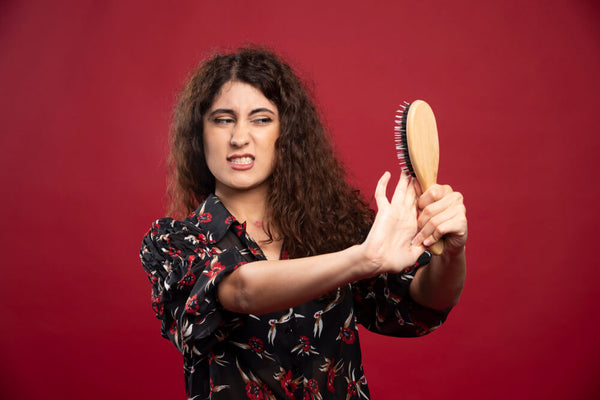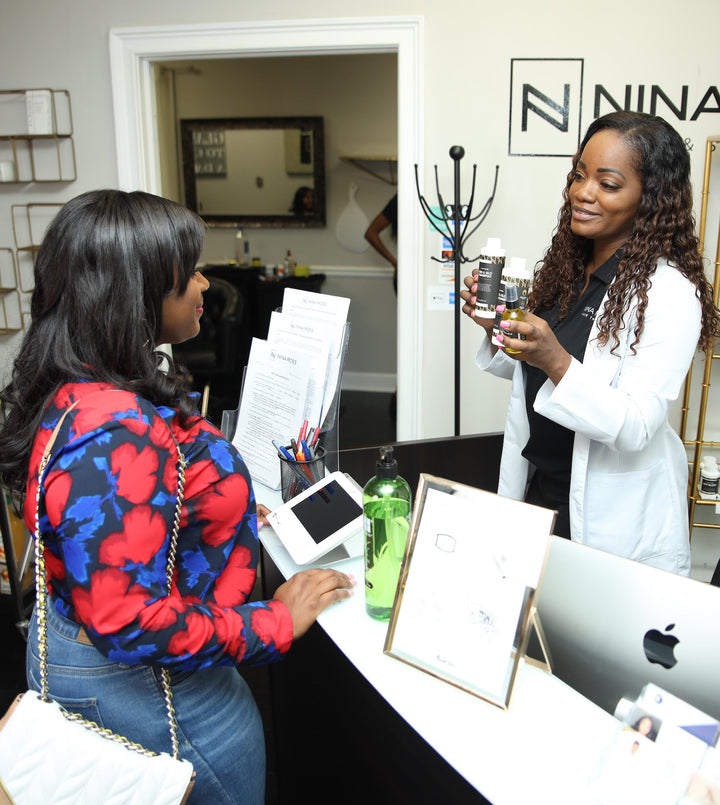Let me guess: it's 2 AM, you're scrolling through your phone, promising yourself "just five more minutes." Meanwhile, your hair follicles are basically screaming for you to put the phone down and let them do their job.
I see this all the time in my Atlanta clinic—women spending hundreds on growth treatments while chronically robbing themselves of the one thing that actually makes hair grow: quality sleep.
If you're wondering why your hair won't thrive no matter what products you use, let's talk about what's happening between your sheets—and I don't mean that kind of excitement.
The Brutal Truth About Sleep and Your Hair
When you shortchange your sleep, your body goes into survival mode. It starts prioritizing essential functions like keeping your heart beating and your lungs breathing. Your hair follicles? They get moved to the bottom of the list.
Here's what's really happening while you're binge-watching or stressing over work emails at midnight: your cortisol levels stay elevated, which literally tells your hair follicles to stop growing and start shedding. Meanwhile, your production of melatonin—the hormone that actually extends your hair's growth phase—gets disrupted.
I've had clients see more growth from fixing their sleep schedule than from expensive treatments. That's how powerful this connection is.

The Two Hormones That Control Your Hair Growth
While you're sleeping, your body releases two key players for hair health. Melatonin does more than help you sleep—it directly stimulates your hair follicles and acts as a powerful antioxidant on your scalp. Then there's human growth hormone, which peaks during deep sleep and is crucial for cellular repair and regeneration, including in your hair follicles.
When you cut your sleep short, you're essentially robbing your hair of its repair crew and growth signals. It's like trying to build a house without sending the construction workers.
Why Stress and Sleeplessness Are a Toxic Duo
That stressed-out, can't-sleep feeling creates a vicious cycle for your hair. High cortisol from stress disrupts sleep, and poor sleep raises cortisol even more. I've treated women whose hair started shedding dramatically during periods of high stress and sleep deprivation—only to watch it normalize when we got their sleep back on track.
The truth is, no amount of growth serums can overcome the damage caused by chronic sleep deprivation. Your follicles are literally being starved of what they need to produce healthy hair.
What "Beauty Sleep" Actually Means for Black Hair
Our hair already faces unique challenges—tight curl patterns that make natural oil distribution difficult, styling practices that cause tension, and conditions like CCCA that thrive on inflammation. When you add poor sleep to the mix, you're creating the perfect storm for hair loss.
Quality sleep increases blood flow to your scalp, delivering the nutrients your follicles desperately need. It's like overnight feeding for your hair—except you're the one who has to show up for the meal.

Simple Changes That Actually Make a Difference
I'm not asking you to become a sleep saint overnight. But here are a few changes that can help both your rest and your hair:
-
Try to maintain consistent bedtimes, even on weekends. Your hair follicles love routine as much as the rest of your body.
-
Create a wind-down ritual that doesn't involve screens. Read a book, meditate, or simply sit in silence for a few minutes.
-
Invest in a silk pillowcase or bonnet. The reduced friction means less breakage, and the comfort might help you sleep better.
-
If stress is keeping you awake, address it directly rather than just treating the sleeplessness. Sometimes the best hair growth strategy is a good therapist.
When Lack of Sleep Isn't the Whole Story
While sleep is crucial, sometimes there are underlying issues making both sleep and hair growth difficult. If there are any hormonal imbalances or nutrient deficiencies or even conditions like sleep apnea, the natural growth and repair of your hair can be affected in a significant way.
This is where our comprehensive approach at Nina Ross Hair Therapy makes the difference so that you can bring your healthy hair back. We don't just look at your hair—we consider your entire health picture because your hair is often the first place your body shows signs of imbalance.
Ready to Give Your Hair the Rest It Deserves?
If you're tired of watching your hair struggle despite doing "everything right," maybe the missing piece is as simple as more consistent, quality sleep. But if you've tried to improve your sleep but your hair still don’t respond as they should, there might be more to the story.
Book your Hair Therapy Evaluation with us today for just $99 and we’ll create a plan that addresses both your sleep and your hair concerns together.














